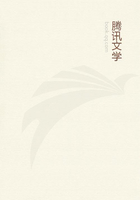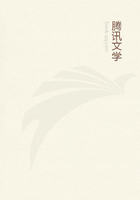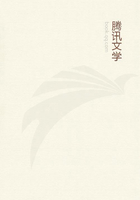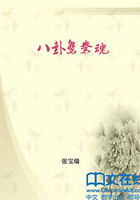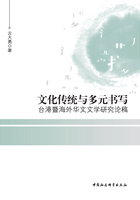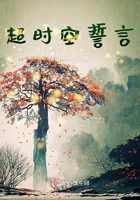The first sensation which an infant gets is for him the Universe.And the Universe which he latter comes to know is nothing but an amplification and an implication of that first simple germ which, by accretion on the one hand and intussusception on the other, has grown so big and complex and articulate that its first estate is unrememberable.In his dumb awakening to the consciousness of something there , a mere this as yet (or something for which even the term this would perhaps be too discriminative, and the intellectual acknowledgment of which would be better expressed by the bare interjection 'lo!' ), the infant encounters an object in which (though it be given in a pure sensation)
all the 'categories of the understanding' are contained.It has objectivity, unity, substantiality, causality, in the full sense in which any later object or system of objects has these things.Here the young knower meets and greets his world; and the miracle of knowledge bursts forth, as Voltaire says, as much in the infant's lowest sensation as in the highest achievement of a Newton's brain.The physiological condition of this first sensible experience is probably nerve-currents coming in from many peripheral organs at once.Later, the one confused Fact which these currents cause to appear is perceived to be many facts, and to contain man qualities.
For as the currents vary, and the brain-paths are moulded by them, other thoughts with other 'objects' come, and the 'same thing' which was apprehended as a present this soon figures as a past that , about which many unsuspected things have come to light.The principles of this development have been laid down already in Chapters XII and XIII, and nothing more need here be added to that account."THE RELATIVITY OF KNOWLEDGE."
To the reader who is tired of so much Erkenntnisstheorie I can only say that I am so myself, but that it is indispensable, in the actual state of opinions about Sensation, to try to clear up just what the word means.Locke's pupils seek to do the impossible with sensations, and against them we must once again insist that sensations 'clustered together'
cannot build up our more intellectual states of mind.Plato's earlier pupils used to admit Sensation's existence, grudgingly, but they trampled it in the dust as something corporeal, non-cognitive, and vile. His latest followers seem to seek to crowd it out of existence altogether.
The only reals for the neo-Hegelian writers appear to be relations , relations without terms, or whose terms are speciously such and really consist in knots, or gnarls relations finer still in infinitum.
"Exclude from what we have considered real all qualities constituted by relation, we find that none are left." "Abstract the many relations from the one thing and there is nothing....Without relations it would not exist at all." "The single feeling is nothing real." "On the recognition of relations as constituting the nature of ideas, rests the possibility of any tenable theory of their reality."
Such quotations as these from the late T.H.Green would be matters of curiosity rather than of importance, were it not that sensationalist writers themselves believe in a so-called 'Relativity of Knowledge,' which, if they only understood it, they would see to be identical with Professor Green's doctrine.They tell us that the relation of sensations to each other is something belonging to their essence, and that no one of them has an absolute content:
"That, e.g., black can only be felt in contrast to white, or at least in distinction from a paler or a deeper black; similarly a tone or a sound only in alternation with others or with silence; and in like manner a smell, a taste, a touch, only, so to speak, in statu nascendi , whilst, when, the stimulus continues, all sensation disappears.This all seems at first sight to be splendidly consistent both with itself and with the facts.But looked at more closely, it is seen that neither is the case."
The two leading facts from which the doctrine of universal relativity derives its wide-spread credit are these:
1) The psychological fact that so much of our actual knowledge is of the relations of things -- even our simplest sensations in adult life are habitually referred to classes as we take them in; and 2) The physiological fact that our senses and brain must have periods of change and repose, else we cease to feel and think.
Neither of these facts proves anything about the presence or non-presence to our mind of absolute qualities with which we become sensibly acquainted.Surely not the psychological fact;
for our inveterate love of relating and comparing things does not alter the intrinsic qualities or nature of the things compared, or undo their absolute givenness.And surely not the physiological fact; for the length of time during which we can feel or attend to a quality is altogether irrelevant to the intrinsic constitution of the quality felt.The time, moreover, is long enough in many instances, as sufferers from neuralgia know.
And the doctrine of relativity, not proved by these facts, is flatly disproved by other facts even more patent.So far are we from not knowing (in the words of Professor Bain) "any one thing by itself, but only the difference between it and another thing," that if this were true the whole edifice of our knowledge would collapse.If all we felt were the difference between the C and D, or c and d , on the musical scale, that being the same in the of notes, the pairs themselves would be the same, an language could get along without substantives.But Professor Bain does not mean seriously what he says, and spend no more time on this vague and popular form of doctrine. The facts which seem to hover before the minds of its champions are those which are best described under the head of a physiological law.THE LAW OF CONTRAST.
I will first enumerate the main facts which fall under this law, and then remark upon what seems to me their significance for psychology.

